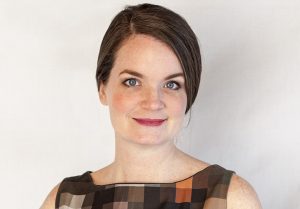
Andrea joined the University of Exeter as a Lecturer in Law in August 2017. She completed her PhD in Cultural Heritage Law with the CREATe RC UK Centre Copyright and New Business Models in the Creative Economy at the University of Glasgow in partnership with the National Library of Scotland. Andrea’s research explores legal issues surrounding copyright, cultural institutions, and the public domain. She frequently writes and presents on open culture and the impact that a claim to copyright in reproductions has on meaningful access to and reuse of our common cultural heritage in the public domain.
In Stockholm, Andrea will talk about Finding the Nuance in Open Access and discuss legal, ethical, and operational questions related to IP that arise during attempts to truly decolonize institutions.
In 2018, the Sarr-Savoy Report on “The Restitution of African Cultural Heritage” was submitted to the French government. The Report goes into great detail about the issues surrounding restitution, but includes little about digitization, intellectual property rights, and open access. This is so despite the fact it recommends “a radical practice of sharing, including how one rethinks the politics of image rights use,” and sets a firm objective for “free access” and “free use of the images and documents.” Yet, this blanket recommendation risks positioning institutions to return material cultural heritage while retaining control over the generation, presentation, and stewardship of digital cultural heritage for decades to come.
As institutions and governments increasingly explore restitution initiatives, IP issues are at the forefront of decolonisation. This presentation explores how the same attention paid to material cultural heritage and their histories must be paid to the digital surrogates, documentation, and associated archival materials. It considers how organisations might better consider such issues arising during the desire to open collections. It explores who benefits from open access, and it challenges how we might encourage greater nuance in the digitisation process. In doing so, the presentation highlights potential barriers to openness and makes recommendations for how to better manage them. It explores how institutions have a key role to play in decolonizing not only cultural collections, their representation and historic management, but also in decolonizing the Internet by encouraging community-based solutions around digitization, access, and education as part of reparations.
